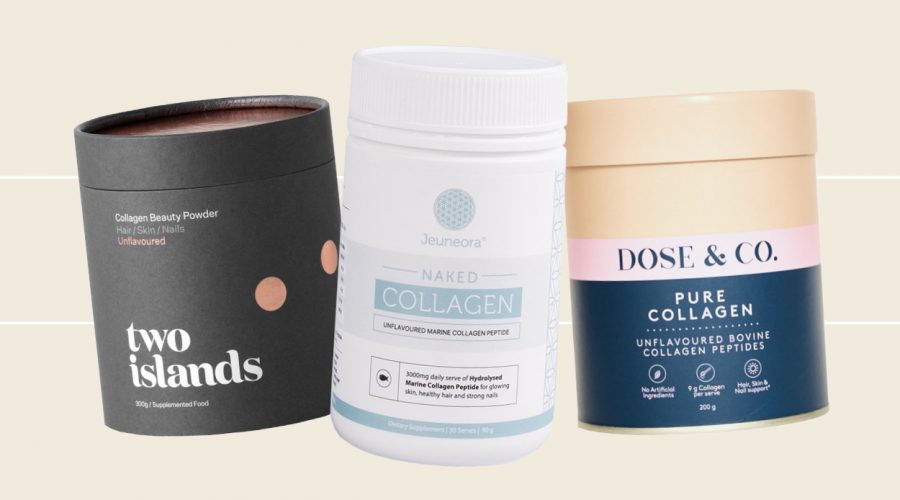You’d be hard-pressed to find a substance that has garnered more hype in the wellness industry this year than collagen. While previously we’ve been familiar with collagen being used externally either in beauty products or in the cosmetic surgery industry, or in pill form as a supplement, recently the trend has shifted to consumption in food and beverage products as a means for absorption to assist our health and appearance.
As a result, collagen products have been cropping up with increasing frequency, and while the current most common form for edible collagen seems to be powders like protein powder and coffee creamer, we’ve seen it incorporated into snack bars, bliss balls, milk and even bottled water.
Claiming to strengthen bones and nails, assist with hair growth, make the skin look plump and smooth, and even ease joint pain, one question hangs over the glut of collagen products: do they work?
The first thing to ascertain is exactly what collagen is. One of the most abundant structural proteins in the body, collagen is known as the ‘glue’ that holds together our physical systems. It forms our skin and bones, muscles, tendons, ligaments and cartilage. An abundance of collagen in the body is evident externally through plump, smooth skin, however we begin to lose about one percent of our collagen per year in our mid-twenties, and as much as 30 percent during the first five years of menopause. When this happens, our skin dries out and wrinkles form, so no wonder we don’t want to let go of the stuff.
Collagen powders are popular for their versatility; able to absorb into hot and cold drinks, and things like baking, they are usually derived from the skin, hide, tendons, bones, cartilage, or other connective tissues of cows, pigs, chicken, or fish.
While there seems to be a slight lag between comprehensive scientific studies (that haven’t been paid for by individual brands) and anecdotal evidence, the latter is overwhelmingly positive, with glowing testimonials speaking to collagen’s prodigious results. It is generally agreed that collagen holds promise and so far no adverse effects of consuming collagen supplements have been documented.

Thinking of trying it?
Here are a few things to consider when you’re choosing a brand.
Look for as few ingredients as possible
While there are many sweetened and blended collagen powders out there, if you’re worried about upsetting your digestive tract it’s easiest to go for a product that just has one ingredient: collagen peptides.
Choose your collagen type wisely
“Watch out for products marketed as ‘plant-based collagen’, says the New York Times. “They don’t actually contain collagen, and though they say they support collagen production, the science is not there to back it up.”
Absorption matters
Collagen is naturally a very large molecule, so most reputable brands will say they have put their collagen peptides through a hydrolyzing process to make them more bioavailable and absorbable in the body. Look for this information on the packaging or website. Vitamin C has also been shown to aid collagen absorption, so keep that in mind with what you pair your collagen with.
In it for the long haul
No matter which kind of collagen you choose, the commonly accepted stance is that it doesn’t work overnight — regular, sustained usage over a period of months is said to yield the greatest results. However, it must be said some of us in the Denizen office have noticed positive differences in shorter time frames, so we think it’s well worth a try.







